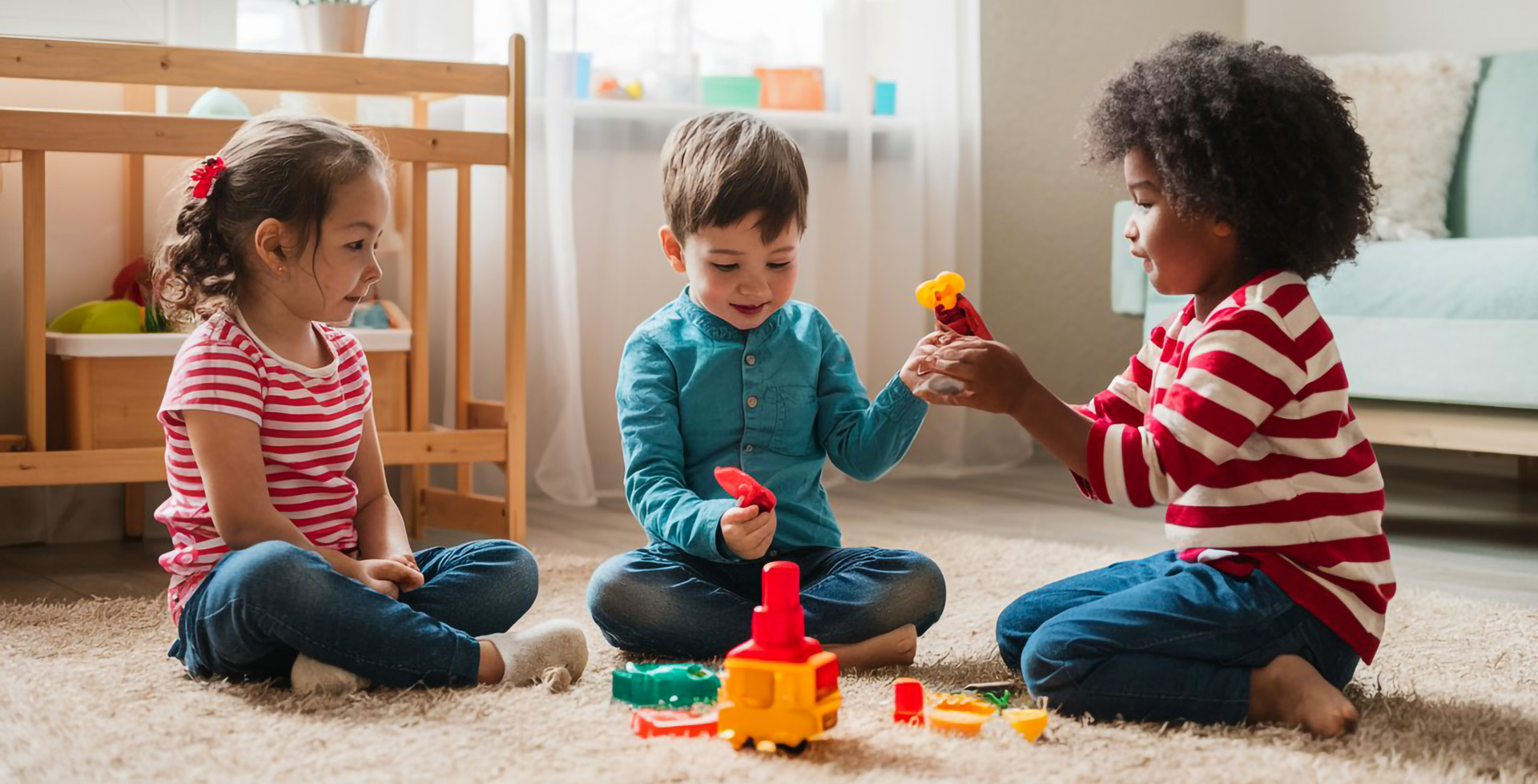Having regular, age-appropriate conversations about puberty, body changes, and sex (the proverbial “birds and bees”) is essential for ensuring your kids have accurate information. According to the American Academy of Pediatrics (AAP):
“…developing a healthy sexuality is a key developmental milestone for all children and adolescents that depends on acquiring information and forming attitudes, beliefs, and values about consent, sexual orientation, gender identity, relationships, and intimacy.”
That said, we understand parents aren’t always comfortable speaking about the topic or may not be sure what “age-appropriate” means. Therefore, our team wants to make it as easy as possible to learn more about having accurate and honest conversations that foster healthy family relationships.
And, of course, you can always have us answer questions or clear up any misconceptions during a routine appointment in case your child needs an objective opinion to support the family conversation.
PANW’s Advice For Talking About Puberty, Sex & Other “Hot” Topics
According to recent surveys by Parents.com and Common Sense Media:
- 70% of parents worry their children will be misinformed about sex-related topics via social media information.
- 50% of parents say they want to wait until their child is 13 before having these conversations (that’s too late!).
- 54% of children had viewed online pornography before turning 13, and 15% had watched online pornography before age 11.
These statistics all point to the value of having open and honest conversations at home. Here are some tips from our team.
1. Evaluate your feelings & have “practice” conversations
If you’re not comfortable having these conversations, it’s important to gauge your own feelings first. When you do initiate – or respond – to these topics with your children, try to be as calm, cool, and fact-based as possible. Some degree of humor is always a bonus to keep things more comfortable.
If you are feeling nervous or uncomfortable, have “practice” conversations with your partner or a trusted friend so you’re prepared for whatever might come up.
When your child gets older (14+), you’ll also want to:
- Use a banana or cucumber and show them how to use a condom (boys and girls need to know this as condoms are essential for protecting them from STDs).
- Buy condoms and make them available. When our own Dr. Buerk had teenage sons, she added a sign to the condiment shelf on the fridge door that said “CONDOMents: Use them every time!” This a great example of how humor normalizes things.
- Talk to your daughters about birth control options, schedule an appointment with us to discuss healthy menstrual cycles, answer their questions, and review birth control options if they’re sexually active/thinking about it.
- Ask us to refer your daughter to an OB/GYN who is great with teenage girls.
The more normal it is to talk about these things early on in your family, the easier it is to have progressive conversations as they age.
2. If your children ask questions, they’re ready to hear the answer(s).
If your child hasn’t asked you anything at all about puberty or sex by the time they’re nine (9), this is a great time for you to start the conversation. We can assure you that by age nine or 10, your child will hear things at school from their classmates, neighborhood friends, or teammates. Front-ending them with the right information can spare them a lot of shock or confusion.
You may be surprised by the questions a precocious five, six, or seven-year-old might ask you. However, you only need to provide as many details as necessary. So, here’s what a conversation may look like:
- Q: How did a baby get in that woman’s (or mommy’s) tummy?
- A: It’s like how a flower grows. There is a special seed, and a mommy’s tummy has a space for the baby to grow. When the seed is planted in the right spot, a baby grows there.
Your child might say, “Oh!” and that’s the end of it. OR they might say:
- Q: What kind of seed is it?
- A: Well, the daddy has a seed called a sperm, and the mommy has an egg. If they come together in the right place and time, they make a baby.
Again, that might be the end. OR they might ask:
Q: How does the sperm get to the egg?
A: You know what? That’s such a great question. But rather than tell you right now, I have a really cool book we can read together. It will answer this and other questions you might have.
The goal is to remain calm, be positive, and answer as simply and accurately as possible without giving them more information than they’re ready for.
3. Get high-quality books and read them with your children
Talks about body boundaries, consent, and puberty typically lay the foundation for ensuing discussions about sex and healthy sexual relationships. There are so many high-quality books out there that can help you frame these conversations targeted for your child’s age. The books are inherently age-appropriate, so they help parents frame what information is most relevant, use age-appropriate terminology, and focus on the subjects most helpful for children to know about.
Always read any puberty/sex book yourself before reading it with your child so you know what’s included. Then, leave the book(s) with them so they can read it independently.
Some of our favorites include:
- The Care & Keeping of You 1 & 2 (girls). The Care & Keeping of You series has two books. The first is oriented toward girls between the ages of eight (8) and ten (10). The second book is aimed at girls ten (10) to 13.
- Growing Up Great! (boys). The book Growing Up Great! is similar to The Care & Keeping of You books, but it’s geared toward males. It’s written for boys eight (8) and older.
- Guy Stuff: The Body Book for Boys. Also written for boys 8 and up, Guy Stuff… was authored by a pediatrician. It includes information beyond what’s in Growing Up Great!, so it may be more relevant to boys 11 and older.
- It’s Perfectly Normal (boys and girls). Another great book that addresses both sexes is It’s Perfectly Normal. This one is best for children 10+ years old. We appreciate that it has wonderful information about how to stay safe and healthy on the internet, which can help your family frame conversations about that topic, too.
- It’s So Amazing! (boys and girls). Written by the same author as It’s Perfectly Normal, the book It’s So Amazing! is a graphic novel-style book about sex (how babies are made). However, it’s written very straightforwardly, so it is as safe to read with a curious seven-year-old as it is your 10, 11 or 12-year-old.
Access to accurate information is the best way to prevent your child from believing the inaccurate things they’re bound to hear from peers or see online. You may even consider letting your daughter read the puberty books geared toward boys and vice versa, which goes a long way toward demystifying what’s happening for the opposite sex.
4. Both genders should be represented in the conversation
There is a misnomer that “moms should have the sex talk with daughters and dads should have the sex talks with their sons.” While your child may be more comfortable talking about puberty, body changes, and sex with a parent who is the same sex as them, it’s important to have some amount of fluidity.
We recommend both parents having conversations about puberty, sex, and sexuality with children of both sexes to keep things well-rounded and to give them a variety of perspectives. It may feel a little awkward, and that’s okay, but honesty and trust pay off. Plus, it lets your child know they can go to either parent with questions or concerns.
If your child is resistant to having these conversations with you, check in about who they would have them with – a grandparent, uncle, aunt, or another trusted adult? To ensure kids are prepared and understand fact from myth, it’s important that they not avoid these conversations. Reading the books listed above in small doses or letting them read on their own, then checking in about what they read can help them get more comfortable talking to you about it.
HELPFUL TIP: If a child (or parent) is uncomfortable in any conversation, consider talking about it in the car or while walking the dog together. When you’re both facing the same direction – rather than eye-to-eye – it can ease the discomfort and may allow your child to speak/ask more freely.
5. Be prepared to learn more than you expected to
Sometimes, parents are shocked to learn how much their children already know. Or, in the case of teenagers, you may discover they have more experience than you thought.
Again, breathe deep and keep calm. If your child shares with you that they are sexually active OR that they’re thinking about it, congratulations! Although this might feel alarming, their willingness to speak with you about it is proof they feel safe communicating with you. If you need space to process what you’ve learned and calibrate to a “judgment-free” m.o., that’s fine.
It may be that you need to have the rest of the conversation later (but soon—like within 24 hours) but do let them know how proud you are that they are being responsible and using protection, and how grateful you are that they feel comfortable sharing with you.
This is also a great opportunity to check whether they feel ready, what they worry about (if anything), if they feel safe and respected by their partner, and so on.
PANW Celebrates Honest Conversations About The Birds & The Bees
Your children deserve honest, clear, and accurate information about puberty, their changing bodies, and sex. Ideally, these conversations should happen before any changes so your child is prepared – but any conversations are better than no conversations about such important topics.
The physicians, nurses, and staff at Pediatric Associates of the Northwest are cheering you on from the sidelines and are always happy to provide an objective viewpoint or clarify any confusion at a wellness visit. Contact us at one of our three Portland Metro locations to schedule your visit.





